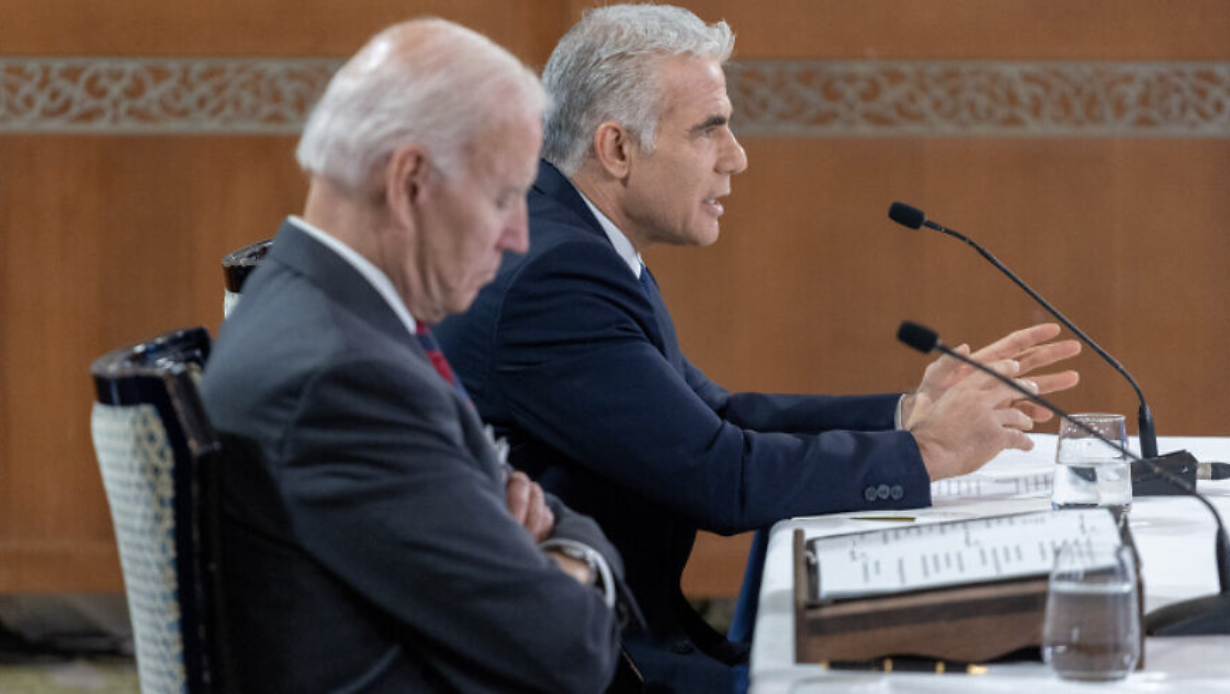The Israel-Lebanon maritime border agreement sets the stage for a more stable Middle East, U.S. President Joe Biden said on Thursday.
“As I said when this historic agreement was announced, it will secure the interests of both Israel and Lebanon, and it sets the stage for a more stable and prosperous region,” he said. “The United States will continue to serve as a facilitator as the parties work to uphold their commitments and implement this agreement.”
Biden said that he was “proud” to congratulate Jerusalem and Beirut on officially resolving their longstanding maritime boundary dispute centered on gas-rich waters.
“Energy—particularly in the Eastern Mediterranean—should not be a cause for conflict, but a tool for cooperation, stability, security and prosperity,” he continued. “This agreement takes us one step closer to realizing a vision for a Middle East that is more secure, integrated and prosperous, delivering benefits for all the people of the region.”
Israeli Prime Minister Yair Lapid on Thursday signed the deal, following its approval by the Cabinet earlier in the day.
“This is a tremendous achievement for the State of Israel and for the government of Israel,” said Lapid at the beginning of the special Cabinet meeting.
Lapid suggested that by agreeing to the deal, Lebanon, an “enemy country,” was effectively recognizing Israel, and noted that the United States was providing Jerusalem with security and economic guarantees.
Seemingly in response, Lebanese President Michel Aoun clarified on Thursday that the accord does not constitute recognition by Beirut of Israel.
In a statement issued after he signed a letter approving the terms of the agreement, Aoun said it would have “no political dimensions or impacts that contradict Lebanon’s foreign policy.”
Meanwhile, a formal signing ceremony took place Thursday afternoon at the United Nations base in Naqoura, located along the Israel-Lebanon border, that was attended by members of the Israeli, Lebanese and U.S. negotiating teams.
Israel and Lebanon remain technically at war and the delegations were not expected to appear together at the ceremony.
The agreement draws a border between the two countries’ exclusive economic zones (EEZs) based on a boundary known as Line 23, and awards a disputed area of around 840 square kilometers (324 square miles) to Lebanon, while recognizing Israel’s claim to the Karish gas field and to royalties from the section of the Qana field that extends into the Jewish state’s EEZ.


























